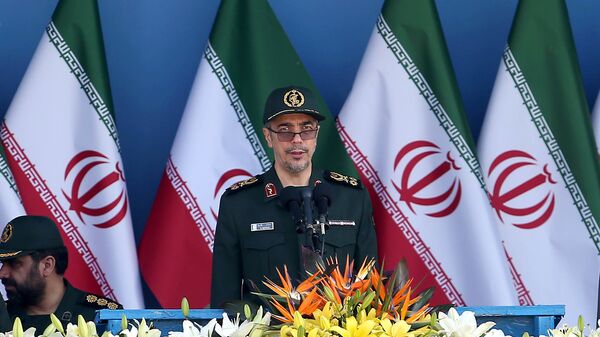The chief of general staff of the Iranian Armed Force, Major General Mohammad Hossein Bagheri, said on Wednesday, that though the US stopped a military strike in June “in the name of a high number of probable victims,” it was not the main reason behind the decision, according to Mehr News.
The top-ranking Iranian Armed Forces official noted that the main reason the US called off the military operation was “Iran’s deterrence power.”
Bagheri highlighted that in spite of all the problems Iran faces, the country “enjoys great capabilities in the defence sector and the Iranian nation will not allow the eruption of another war,” Mehr News reported.
In June, the IRGC downed a US spy drone which Tehran stated was in violation of the country’s aerospace. The US Central Command (CENTCOM) denied Tehran’s statement, claiming instead that the UAV was hit while operating over international waters in the Strait of Hormuz.
Following the incident, the US president said that he had called off an airstrike after learning that some 150 Iranians would die if the attack went forward.
Tensions between Iran and the US have intensified following the 2018 US withdrawal from the 2015 Joint Comprehensive Plan of Action (JCPOA), also known as the Iran nuclear deal, and the subsequent reimposition of sanctions against Tehran. Recently, Washington has built up its military presence in the region and attempted to form a regional coalition against Iran.
Tehran, reacting to the US moves, announced a partial suspension of its obligations under the JCPOA, noting that it would continue to gradually abandon its nuclear commitments every 60 days until the five remaining signatories to the deal (China, France, Germany, the UK, and Russia) ensured that Tehran's interests were protected.




